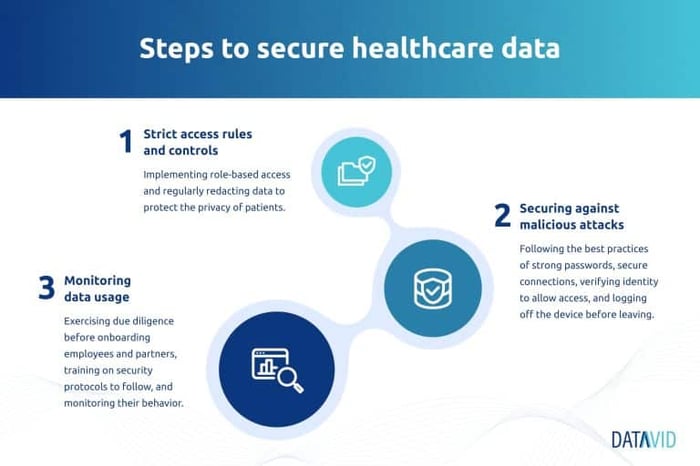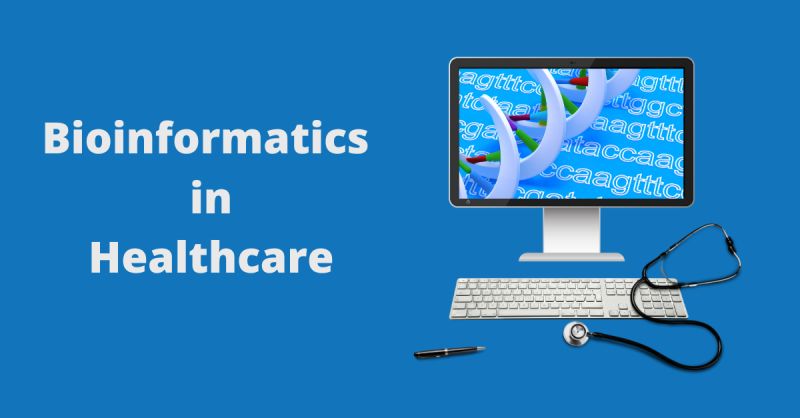
The Imperative of Health Data Security: Safeguarding Patient Information
In the digital age of healthcare, the protection of health data has become a paramount concern. As medical information becomes increasingly digitized and interconnected, the importance of robust health data security measures cannot be overstated. Navigating the terrain of data security is crucial to maintaining patient trust and the integrity of healthcare systems.
Rising Threats in the Digital Landscape: A Call for Vigilance
With the proliferation of electronic health records and the interconnectedness of healthcare networks, the threat landscape has evolved. Cyberattacks, data breaches, and ransomware incidents pose significant risks to the confidentiality and integrity of health data. Healthcare organizations must stay vigilant to identify and address these evolving threats promptly.
Health Data as a Target: Understanding the Stakes
Health data is a valuable commodity on the dark web, fetching high prices due to its sensitive nature. Patient records contain a wealth of information, from personal details to medical history and financial data. The repercussions of a security breach extend beyond financial losses, encompassing damage to reputation, legal ramifications, and, most importantly, compromised patient well-being.
The Role of Encryption: Fortifying the Digital Fortress
Encryption stands as a formidable tool in fortifying the digital fortress of health data. By converting sensitive information into unreadable code that requires an encryption key for access, healthcare organizations can thwart unauthorized access. Implementing robust encryption protocols is essential to create an additional layer of defense against potential breaches.
Two-Factor Authentication: Bolstering Access Controls
Two-factor authentication (2FA) adds an extra layer of security by requiring users to provide two forms of identification before accessing sensitive data. Implementing 2FA in healthcare systems ensures that even if login credentials are compromised, an additional verification step is in place. This simple yet effective measure significantly reduces the risk of unauthorized access.
Employee Training and Awareness: Strengthening the Human Firewall
Human error remains a significant factor in data breaches. Employee training and awareness programs are critical components of a comprehensive health data security strategy. Ensuring that staff members are well-informed about cybersecurity best practices, phishing threats, and the importance of safeguarding patient information contributes to a strengthened human firewall.
Regular Audits and Monitoring: Proactive Risk Mitigation
Regular audits and monitoring of healthcare systems are proactive measures to identify vulnerabilities and unusual activities. Continuous monitoring allows for the timely detection of security breaches or suspicious behavior, enabling swift intervention before significant damage occurs. This approach aligns with the adage that prevention is better than cure, especially in the realm of health data security.
Legal and Regulatory Compliance: Navigating the Complex Landscape
Navigating the complex legal and regulatory landscape is integral to ensuring health data security. Compliance with laws such as the Health Insurance Portability and Accountability Act (HIPAA) in the United States and the General Data Protection Regulation (GDPR) in Europe is not only a legal requirement but also a fundamental step in protecting patient privacy and data integrity.
Collaborative Approaches to Cybersecurity: Industry-Wide Defense
In the face of evolving cyber threats, collaboration is key. Healthcare organizations, technology vendors, and regulatory bodies must collaborate to share threat intelligence, best practices, and technological advancements. A united front against cyber threats strengthens the industry’s overall defense, creating a more resilient healthcare ecosystem.
The Future Landscape: Innovation and Preparedness
As technology continues to advance, the landscape of health data security will undoubtedly evolve. Innovation, preparedness, and a commitment to staying ahead of emerging threats will be paramount. A proactive stance, coupled with ongoing investment in cybersecurity measures and workforce education, will ensure that the guardians of health data remain one step ahead in this dynamic digital age.
To delve deeper into the critical realm of health data security, visit Centrum Zdraví for comprehensive information and resources.

